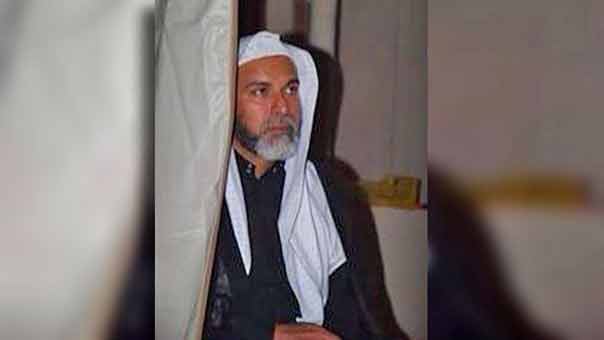
Four years after his arrest in clear violation of international and local laws, the Kingdom of Saudi Arabia continues to keep Sheikh Samir al-Hilal in solitary confinement for the fourth year without any contact with family members or a lawyer, without charging him, and without trial.
Since September 2015, the family of Sheikh Samir al-Hilal (born 20 December 1960) has not been able to visit him despite their ongoing requests and promises they received to visit him. The Saudi government prevented him from contacting his family for seven months after his arrest, and his current communications with his family are irregular, unlike the regular weekly calls allowed most detainees.
While the trial is expected to start soon, the context of his arrest and his deprival of visits and legal counsel, which would be largely futile anyway, raise fears that an unfair trial may begin after four years of numerous physical and psychological abuses.
ESOHR has previously documented the abuses al-Hilal has suffered since his arrest and published a report laying out how Ministry of Interior forces arrested him without a warrant, raided his home, and brandished a weapon in his wife’s face.
The documentation also showed that al-Hilal was forcibly disappeared. Al-Hilal’s family was unable to learn the location of his detention for a period of time, and when they contacted the Dammam Prison administration, they were told that he was in al-Ha’ir Prison in Riyadh—the country’s largest and worst political prison. After the family consulted the prison, the staff confirmed his presence there.
In July 2016, one of Sheikh al-Hilal’s wives was told that he could be visited; however, after his family went to the prison to visit him, they were prevented from entering on the basis that the privilege applied to the victim’s wives only. The family sent many letters to official entities to allow them to visit Sheikh Samir al-Hilal, but they received no response. The official human rights body told the family that it had visited him twice, in May 2016 and February 2107, and explained that it had submitted a letter to the Ministry of Interior containing a group of requests, including allowing calls and visits with the victim.
Four years after his arrest, the abuses of al-Hilal continue, a clear indication of the lack of justice in any trial that he may undergo because he did not obtain any pre-trial rights.
ESOHR believes that the Saudi government has violated its own local locals as well as numerous international laws in Sheikh al-Hilal’s case. These include the International Convention for the Protection of All Persons from Enforced Disappearance, Article 17 of which stipulates that states must “[g]uarantee that any person deprived of liberty shall be authorized to communicate with and be visited by his or her family, counsel or any other person of his or her choice, subject only to the conditions established by law.”
Likewise, ESOHR stresses that the detention of Sheikh al-Hilal is arbitrary according to Category III as classified by the Working Group on Arbitrary Detention, in the case of “total or partial non-observance of the international norms relating to the right to a fair trial, spelled out in the Universal Declaration of Human Rights and in the relevant international instruments accepted by the States concerned.”
ESOHR emphasizes that the case of Sheikh al-Hilal is only one of many indicators of the Saudi government’s disdain for local and international laws, and his case demonstrates the depth of the violations leading to unjust trials and rulings.
